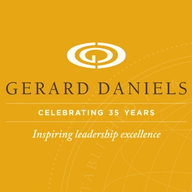Executive roles can be rewarding, but they can also be extremely challenging. The learning does not end with the appointment – although it is often assumed that the more senior leaders become the less support is needed and priority is given to those on their way up. In truth, leadership is a journey that doesn’t end. The minute a leader stops learning, the less effective they become, so it is critical that organisations resource the ongoing development of all leaders.
“There is often a paradoxical relationship between career progression and the value placed on continued learning,” says Barry Bloch, Global Partner for Board and Executive Leadership. “And although we know that performing executive and non-executive roles is complex and dynamic, rather than intensifying and focusing on learning this tends to be a time when the learning journey declines or stops.”
Here Barry explores some of the misconceptions that stand in the way of continued learning and growth; how effective coaching can support leaders in a practical, contextual and customised way; and how to build an effective coaching relationship.
Common coaching misconceptions
Many factors can deter leaders from investing in coaching and other forms of continued learning.
Believing that their learning journey is complete
To be appointed to a senior role requires significant prior leadership experience, so it is easy for senior leaders to assume that they already know everything that they need to know to succeed in top leadership roles. However, ongoing and focused learning is critical to performance and sustainability at any and all levels of leadership.
“Leaders really do need to continue learning to be able to adapt and lead their organisation through change, and through dynamic and extremely challenging times,” says Barry. “Ongoing leadership learning is often particularly important if their career path is based on technical and functional knowledge and management, rather than enterprise-wise and transformational leadership.”
Mistaking busyness as a sign of effectiveness and achievement
Executives often fail to prioritise their learning if they mistake busyness as a measure of their success.
“Excessive busyness is counterproductive as it leads to lower motivation, lower productivity and higher levels of stress for the individual and others they lead and work with,” says Barry. “While learning and development requires time, having an effective coachcan reduce busyness, create a learning rhythm or cadence and as a result performance is more effective and sustainable as senior leaders.”
Over-reliance on formal training
While there is a place for formal training, these programs are typically not customised and rarely deliver comprehensively to the individual leader’s learning needs and goals. Formal training can also distract or detract from the leader's on-the-job learning, which is the almost always the very best way for leaders to learn and grow, and the most effective way to achieve unique, positive and impactful behaviour change.
“Effective leadership coaching can help individuals identify, practice and embed how to lead more effectively in their specific context and with their specific needs. Effective coaching will help the leader focus on behaving differently rather than knowing more, and understanding, accepting and applying specific leadership behaviour change rather than simply theorising about it,” says Barry. “Effective coaching is therefore practical, applicable, behavioural, intensive and immersive. If it is theoretical, hypothetical or esoteric, it will fail.”
Embracing learning as a core part of ongoing success
Executives are less likely to seek coaching if learning and growth is seen as a weakness. “Learning cannot be valued where this judgmental or dismissive culture exists. But if a keenness and openness to learn and grow is perceived to be a positive part of leadership, there will be far greater commitment to ongoing learning and development by the individual,” says Barry. “Endorsing leadership coaching can also positively impact organisational culture, encouraging people at all levels of the organisation to invest in their own learning and growth.”
How to create an effective coaching relationship
When coaching relationships are trust-based, contextual, confidential, pragmatically and non-judgementally challenging, they allow leaders to learn and to grow. This growth not only impacts their short and long term performance, but also affects their ongoing sustainability as effective leaders and the overall performance of their organisation. Here are some factors to consider when building an effective coaching relationship.
Find the right coach
Finding a coach with the right skills, experience and inter-personal ‘chemistry’ will significantly enhance the value that can be obtained from this relationship. Neutrality and independence are also important, as seeking feedback from family, friends and colleagues can offer some value, but it is rarely sufficient to lead to significant learning and growth.
“The people we are closest to can’t always ask the right questions to challenge us as leaders, as these relationships are not independent or objective,” says Barry. “Although anyone can call themselves a coach, an effective coach in the leadership context will provide an independent perspective and a safe space for practical reflection, insight and action. They should bring tried and tested coaching skills; lived experience; a deep understanding of both behavioural psychology and the role of the leader; and a genuine commitment to learning and development. They should also be able to work contextually and non-judgementally.”
Build and maintain trust
Trust is a critical factor in building an effective coaching relationship. “You must be able to trust that your coach will challenge you and help you learn and grow in a non-judgmental, but rigorous and robust way,” says Barry.
Trust also centers on psychological safety, which is never negotiable. “As a coachee trust is important in knowing that your coach will keep you outside of your comfort zone, but inside your safety line,” says Barry.
“As a coach you must know what is and isn't appropriate in an engagement because coaching is not psychotherapy or clinical counselling, it is not consulting, and it is not a friendship. You must also understand that the boundary of your role is developing leadership effectiveness in the workplace, and that every question you ask and challenge you pose must fit within that context,” Barry continues. “As a coach you must use a toolkit not a rule kit and apply best fit for the individual as opposed to pushing one model, theory or process in all cases. Each individual coachee is unique, and as such each coaching relationship needs to be unique too.”
Self-led learning
Many organisations provide leadership coaching services, but to be effective it must be an invitation and therefore voluntary – never a requirement or obligation. And while a leadership coach guides the process, the learning journey itself must be self-led by the coachee.
“We don’t learn if we are forced to do so, and any sense of fear, threat or obligation is detrimental to building an open and effective coaching relationship,” says Barry. “Forcing an individual to participate in coaching will not only inhibit their openness to learn, but it will fundamentally challenge the principle of trust and may jeopardise their psychological safety.”
Bring your full self
A good coaching relationship can be highly effective for advancing leadership skills and abilities; closing knowledge, awareness and insight gaps; improving individual and organisational performance; and supporting career progression and choice. But reaping the reward requires engaging wholeheartedly in the process.
“Ultimately, the learning belongs to the learner, so if you don’t invest in coaching you won’t benefit from it,” says Barry. “To extract value from coaching you must be present in the relationship and hungry and open to learn. You should also be prepared to challenge yourself and to try things differently – in the right way, and at your own speed.”
To explore Executive coaching opportunities for yourself or your Executive leadership team, reach out to Gerard Daniels today.







